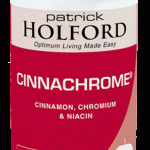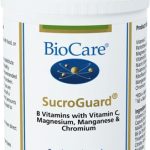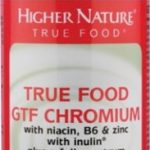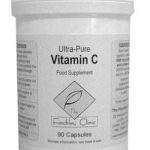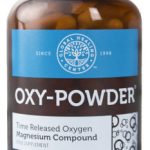It’s pretty much taken as given nowadays that high blood sugar levels are bad for you, but why actually is this? After all, scientifically speaking, our bodies need sugar, don’t they? Well, yes; in so much as they need the simple carbohydrate-based blood sugar that’s glucose (derived from the food we eat) that circulates our bodies in our blood and provides our cells with their key form of energy, ensuring it’s of critical importance to aerobic respiration.
That said, it’s all about balance; we should all be aiming to strike a balance and ensure our blood sugar level is neither too high nor too low. For some people, doing that’s easier said than done, but read on for why it’s important for them – and indeed all of us – to do so…
What’s a balanced blood sugar level?
Generally speaking, a balanced, normal blood sugar level varies between around 60 milligrams per decilitre (mg/dL) and 90 mg/dL. Levels are usually at their lowest just before someone eats a meal. For those who are healthy and don’t have diabetes, their level is likely to be in the 70-80 dg/mL range before a meal. Put simply, if you haven’t eaten for a while and your level’s above 100 mg/dL or, alternatively, lower that 60 mg/dL, it’s probably not good news.
High blood sugar dangers
Should your blood sugar level be too high, often due to an unbalanced diet, glucose can end up behaving like a slow-acting poison. This phenomenon is called hyperglycaemia and it inhibits the cells of the pancreas (a gland located behind the stomach) to do their job and create insulin, a hormone that, when the right amount of it is produced, is key to balancing blood sugar at a healthy level. This is because it’s insulin that’s called on to move glucose from the blood stream and into cells, where the latter gets broken down and used as energy. If there’s not enough glucose to do this (or it can’t do it adequately enough) because of hyperglycaemia, it can result in diabetes.
Additionally, high blood sugar levels can cause atherosclerosis (when blood vessels harden), which in turn can lead to a whole host of problems in the body, including heart attacks; strokes; kidney disease/ failure; loss of vision/ blindness; poor circulation; weakened immunity; slowed wound-healing; neuropathy (nerve damage) and erectile dysfunction.
Glycaemic load and GL diets
If you’ve been informed your blood sugar level is high – or gets unhealthily high on occasions – then you may have been recommended an altered diet. This is often referred to as a ‘GL diet’; GL is short for glycaemic load, a measurement referring to different foods and what effect they’ll have on someone’s blood sugar. The higher the GL the more a food will contribute to the level; the lower it is the more the food encourages the body to burn fat and, thus, return it to a healthy blood sugar level – as well as, in the long term, contribute to a potential weight loss programme.
Glycaemic load is itself based on what’s known as the glycaemic index (GI), which arranges foods and drinks according to how fast or slow the carbohydrates they contain are released, thus their potential effects on blood sugar level (fast releasing is good; slow releasing bad). On this index you’ll find many fruits and vegetables are good (lightly cooked or raw especially, although fresh, frozen or canned are also recommended) and, as you may have guessed, sugar-rich snacks are bad (sweets, crisps, pastries and cakes).
Low blood sugar dangers
Essentially, the opposite of the high blood sugar-caused hyperglycaemia is the low blood sugar-caused hypoglycaemia (or ‘hypo’); it’s basically when there’s an abnormally low amount of glucose flowing in your bloodstream. It is possible for someone who doesn’t have diabetes to have hypoglycaemia, but it’s rare; generally, then it’s often linked to diabetes and, to that end, is usually brought on when a diabetic takes too much (exterior) insulin, misses a meal or over-exercises.
Among non-diabetics, it can be brought on through malnutrition, alcoholic binge drinking or due to conditions like Addison’s disease. Usual signs that hypoglycaemia could be about to come on include (often in addition to hunger) trembling, shakiness and/ or sweating. Additionally, in some cases, people have difficulty concentrating, become dizzy or confused or may even lose consciousness.
Treatment-wise, a hypoglycaemia sufferer should find something sugar-based to eat or drink quickly (glucose tablets or sugary fruit juice) in order to help balance blood sugar levels, ideally followed by something that’s a longer-acting, ‘starchy’ carbohydrate (such as a sandwich or biscuits). So important is this, that they’re advised to carry such food/ drink items about with them when away from home as well as a form of identification so that, in case they find themselves in an emergency situation, those around them are alerted they suffer from hypoglycaemia – and, if relevant, diabetes too.
Supplements
Maintaining a balanced blood sugar level isn’t always easy, especially for diabetics, so a helping hand may well be welcome for some sufferers of hyperglycaemia or hypoglycaemia. Moreover, should you have been advised to follow a GL ‘low’ diet, you may sometimes find it a challenge to always buy and eat the recommended types of food and drink. To that end then, perhaps you may be interested in taking a look at trying some blood sugar supplements? The following – and more – are all available from The Finchley Clinic:
Cinnachrome 60’s (60 capsules) – suitable for those following a GL diet, this product combines Cinnulin PF (a concentrated extract of cinnamon) with niacin (Vitamin B3), which aids the release of energy from carbohydrates; suitable for vegetarians.
Sucroguard – Blood Sugar Support (90 and 30 capsules) – blends together key nutrients involved in managing glucose levels (including chromium picolinate) to ensure the body’s cells are provided with the energy they need; suitable for vegetarians and vegans.
True Food GTF Chromium (90 and 30 tablets) – for healthy glucose and lipid metabolism, this supplement comprises Saccharomyes cerevisiae (food yeast) which, with its naturally-occurring GTF (glucose tolerance factor) Chromium plus co-factors, supports insulin action; great for a weight management programme and suitable for vegetarians and vegans.

